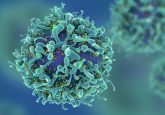New approach to combating challenging pediatric brain tumors devised

Researchers from Cancer Research UK have uncovered why a particular type of pediatric brain tumor is notably responsive to chemotherapy. The breakthrough, published recently in the journal Cancer Cell, could lead to improved treatments for other cancer types.
The tumors in question, termed WNT medulloblastoma, secrete WNT antagonists that block blood–brain barrier formation. In contrast to healthy vasculature, these perforated blood vessels permit the entry and accumulation of chemotherapy drugs.
“This research gives us valuable insight into why some brain tumors respond better to chemotherapy than others. While cancer survival overall has doubled over the past 40 years, treatments for brain tumors have seen much slower progress. And brain tumors in children remain a major challenge,” Pamela Kearns (Cancer Research UK) commented. “Cancer Research UK have made these challenges areas of priority and set up a specific Kids & Teens campaign to increase the investment in research focussed on children’s cancers. More research is needed to help us find ways to diagnose and treat the disease earlier and develop more effective treatments that have less of the long term side effects that can have a major impact throughout a child’s adult life.”
The researchers believe that they can apply this knowledge to the development of more effective therapies for cancers that are less responsive to chemotherapy. In particular, they hope to manipulate the blood–brain barriers of more resistant tumors to increase chemotherapy permeability.
“This research is exciting because it means that as well as finding kinder treatments for a curable type of brain tumor, we may also be able to manipulate brain tumors that are difficult to treat successfully to make them more responsive to treatment,” explained lead author Richard Gilbertson (Cancer Research UK’s Cambridge Institute). “This could make chemotherapy even more effective and reduce the amount of radiation that we give to children. This would mean fewer long term side effects for children later in life which is something we’re always working towards.”
Sources: Phoenix TN, Patmore DM, Boop S et al. Medulloblastoma Genotype Dictates Blood Brain Barrier Phenotype. Cancer Cell. DOI: http://dx.doi.org/10.1016/j.ccell.2016.03.002 (2016); Cancer Research UK press release




